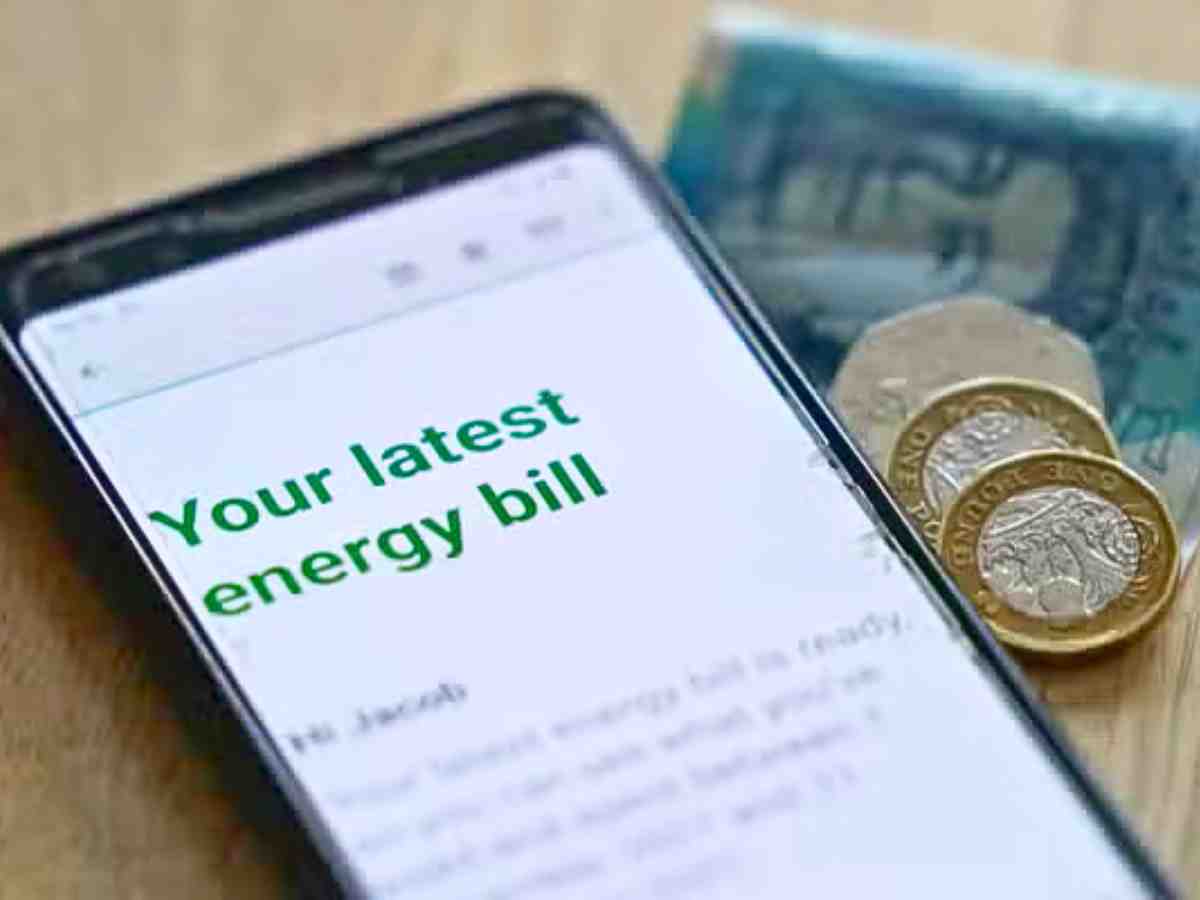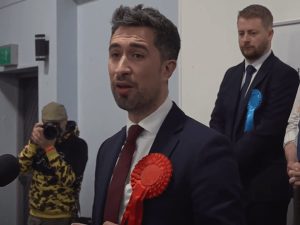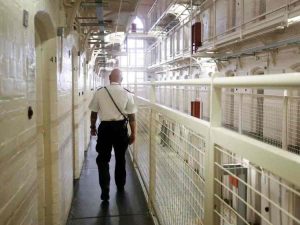Over 20,000 people have flooded energy regulator Ofgem’s inbox calling for it to scrap cruel standing charges on energy bills. As part of Energy For All’s letter-writing campaign, thousands have sent emails to demand it ditch the flat-rate daily charge that disproportionately impacts poorer households – on top of the cut to the winter fuel payments.
20,000 call for Ofgem to ditch cruel standing charges
With energy bills set to rise 10% on 1 October, Fuel Poverty Action, Green New Deal Rising, and the Peace and Justice Project have been urging the public to take action.
The campaign is in response to Ofgem’s current consultation on standing charges, which closes on 20 September. As the regulator explained in this, standing charges are:
set by your energy supplier and are also included in the energy price cap. Your supplier will charge you this cost each day, even if you do not use any energy on that day. The charge covers the cost to maintain the energy supply network, take meter readings, and support government social and environmental schemes.
In January, Ofgem closed its first consultation on the standing charge. Over 30,000 members of the public responded to this, which the regulator itself acknowledged:
demonstrated the strength of feeling among the public for change
Crucially, prominent among these changes was for Ofgem to abolish the standing charge altogether. Instead, respondents said it should shift:
these costs to energy suppliers to absorb using profits
However, this is not what Ofgem has put forward in the new consultation. So, the Energy For All campaign is getting members of the public to call it out.
Notably, 30,000 individuals engaged with the previous two-month consultation. This time, more than 20,000 people have directly added their name to the call to abolish the standing charges altogether- with many thousands joining the campaign in just the last week alone.
Fuel Poverty Action’s Jonathan Bean said that:
Ofgem proposing only minor tweaks in this latest consultation flies in the face of the clear verdict of the last consultation
They’ve chosen to quietly consult again while winter fuel payments dominate the news. That’s why Fuel Poverty Action have teamed up with Green New Deal Rising and the Peace & Justice Project to make sure that this time Ofgem gets the message.
The ‘cruelty of our current system’
Due to Ofgem raising the energy price cap, these standing charges – set by suppliers – will also rise this winter. Crucially, it means the standing charge will be over £330 a year. Energy suppliers will charge this, even when people are not using any energy.
Bean warned that this could push many into fuel poverty this winter. He argued that:
the cruelty of our current system is that even those living in small flats using no energy at all are paying the same standing charge as high users living in mansions.
The standing charge alone is enough to push many into fuel poverty, before they are allowed to buy any energy at all,’ says Bean.
Energy is essential. We aren’t charged £7 at the supermarket door to be allowed in to do our weekly shop. This outrageous poll tax on energy hits the poorest hardest.
Of course, this is also coming on top of Labour Party’s callous decision to cut the winter fuel payment to millions of pensioners.
Given that many low-income pensioners are now set to lose out on the winter fuel payment, campaigners say standing charges will push many into ‘energy starvation’.
Moreover, as the Canary previously highlighted, the winter fuel payment cut, alongside rising standing charges are a double-whammy for pensioners this winter. We wrote how the standing charges already make up a disproportionate amount of low energy users’ bills.
General Secretary of the National Pensioner’s Convention Jan Shortt emphasised the impact this will have on elderly people:
Standing charges have reached such a level that they now make up the bulk of household bills. For those older people who have cut down on their consumption due to the cost of energy, there is very little difference in savings.
Therefore, Shortt argued that:
The Regulator should get rid of them and work on a strategy to apply energy for all which is the fairest way to support those most in need.
Echoing this, Bean also said that:
Due to the energy price crisis, many older people resort to turning off their heating altogether, putting their health at risk.
It’s especially brutal for single pensioners hit hard by both the £330 standing charge and losing their £300 winter fuel payment.
Compounding the energy crisis for chronically ill and disabled people
The Canary also underscored how the winter fuel payment, alongside soaring standing charges with rising energy bills will also disproportionately hit chronically ill and disabled people.
Firstly, with the unit price going up, higher energy users will be hit. Obviously this includes:
chronically ill and disabled people who typically have greater energy needs for aids and equipment to help manage their conditions.
Then, the staggering standing charges will eat into disabled people’s – many of whom are on low-incomes to begin with – vital finances needed to look after their health.
To make matters worse, the government’s equality analysis has intimated that 1.6 million disabled pensioners will now lose the winter fuel payment this winter.
Naturally, each of these compound the impacts of the energy crisis for chronically ill and disabled people.
It’s why members of Disabled People Against Cuts (DPAC) are also lending their support to the campaign. Rick Burgess from Manchester DPAC said:
everyone paying a standing charge is subsidising failed companies in our failed privatised utility sector.
Even before using a single unit of energy disabled people pay tens of pounds a month to cover over Ofgem’s shame. Money we actually need to avoid worsening health. Instead it is taken from us under threat by a failed utility system.
Corbyn backs the standing charges campaign – and you can too
However, Ofgem is only tinkering around at the edges of the problem – much like Labour has on the winter fuel payments.
It’s consulting on ‘reform’ options to the standing charge.
The regulator’s latest proposals include shifting some of the standing charge onto unit prices. However, campaigners say Ofgem is asking ‘all the wrong questions’.
They have pointed to Ofgem’s decision last year to hand British Gas an extra £500m in profits. As a result, they argue that reducing standing charges should not mean higher bills.
The campaign letter blasts Ofgem on this point, saying:
it is plain wrong that your latest consultation suggests that savings on standing prices must mean increases in unit prices. You need to do your job to cut costs and profits, and work with Government to get rid of the levies and taxes that are a big chunk of the standing charges.
Bean also summed this up, saying:
We are paying for the bloated overheads and obscene profits of energy firms.
But it doesn’t have to be this way. Ending standing charges is the first step towards implementing Energy For All, which has the backing of over 660,000 people.
Ofgem and the government need to overhaul our broken energy system, so no one suffers energy starvation over winter.
Politicians from multiple political parties have taken aim at standing charges. Labour has promised to reduce them, and both the Conservatives and Liberal Democrats have manifesto commitments to reform them.
By contrast however, Independent Alliance MP Jeremy Corbyn has come out in support of the Energy For All’s demand to scrap them altogether. He said that:
standing charges are intrinsically unfair as they charge everyone the same regardless of income or wealth.
I first opposed standing charges when I entered Parliament in the 1980’s and still do now. It’s time for them to go and I’m proud that our Peace & Justice Project is supporting this campaign.
There’s still time to join him and tens of thousands of others who’ve already spoken up against these cruel standing charges. Energy For All are sending the letters to Ofgem CEO Jonathan Brearley, Director General Tim Jarvis, and Energy Minister Miatta Fahnbulleh MP. Fuel Poverty Action will also highlight these in its official consultation response. You can add your name and send an email as part of the campaign here.
Featured image via the Canary




